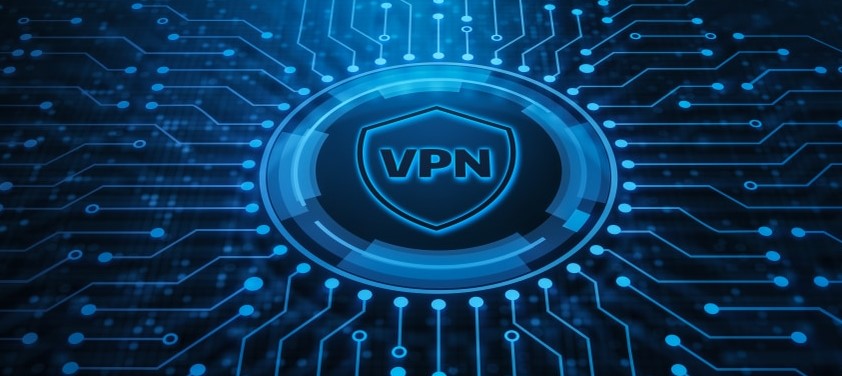The use of blockchain-based things is becoming the norm in our digital lives. There’s a new permanent digital fabric replenishing the internet beneath our feet that you’re probably unaware of. Blockchains, like the Internet of Things and the cloud, isn’t a common term. It’s not an in-your-face invention that you can readily touch and see, like a smartphone or an Amazon package. However, in a world where anybody can edit a Wikipedia article, blockchain, and VPN online are the answer to a question we’ve had since the dawn of the digital age: how can we trust what happens online?
Every other day, we cover more aspects of our lives: our governments’ core activities and online societies. We do all of our shopping online and conduct all of our banking over the internet. We log in to apps and services that help us construct our digital selves and send information back and forth. Consider blockchain to be a traditional fabric beneath which everything that occurs—every virtual transaction; the transfer of products, value, and services; or personal data—is recorded in real-time. The chain then encrypts the information and disperses it throughout a worldwide network of “nodes,” or shared computers, such that it can never be modified. In the next part, you’ll learn more about this.
What Exactly is a Blockchain?
A blockchain is made up of two parts: a decentralized network that facilitates and confirms transactions, and an immutable ledger that the network keeps track of. These exchanged transaction records are visible to everyone on the network, yet there is no single point of failure from which logs or digital possibilities may be attacked or damaged. Because of this decentralized responsibility, no institution, whether it is a major bank or a corporate behemoth like Google or Facebook, is in charge of that data. There are no third-party guardians of the internet.
Consider a blockchain as a shared database that keeps track of a list of logs. These records are referred to as blocks, and each encrypted block of code contains the history of all previous blocks, as well as real-time transaction data down to the second. As a result of chaining such blocks together, the term “blockchain” was coined.
Decentralized Blockchain-Based VPNs
There is no central point of control in a decentralized blockchain-based Virtual Private Network. The system is automatically fairer and more secure when there is no central authority. The whole essence of decentralization is encapsulated in the way data is kept on a blockchain.
A decentralized VPN, in basic terms, aggregates the traffic of several computers and interacts through a peer-to-peer method. As a result, each computer serves as a server. Because the nodes may make choices that affect the VPN with the use of blockchain technology, decentralized VPNs cannot be hacked because every computer node would have to be hacked to have access to the system. If decentralized blockchain-based VPNs are the future of private communication, it would be prudent to get started right away.
Private communications firms are now on the rise, offering an all-in-one solution to protect the privacy of phone conversations and internet connections in the GSM system.
Some of the Services Offered Include:
- Modification voice features
- Anonymous communication with subscribers
- Anonymous subscribers connections
- Virtual phone number rental for incoming calls.
- Banning geo data transfer
- Offering outgoing replacement numbers
- Random Routing
You should not, however, expect to pay the usual mobile network charge, which includes unlimited data and calls. The cost of a private communication network might be rather high.
Who is Going to Use it First?
The giant banks and IT behemoths are first on the list. Big corporations will continue to push innovation, and the rise of blockchain-based smart contracts is transforming blockchain into a mediator for all kinds of legal agreements, complicated commercial dealings, and automated data transfers. IBM and Microsoft, for example, are utilizing their cloud infrastructure to develop unique blockchains for clients and experiment with particular use cases, such as establishing a global food safety network of producers and merchants. On the educational side, researchers are looking into blockchain uses for anything from digital identity to insurance and medical records.
Several firms are leveraging the technology for anything from global payments to song sharing, from diamond tracking to the legalized marijuana sector, all at the same time. That is why the potential of blockchain is so vast: You can put anything on a blockchain when it comes to digital assets and transactions. Before the widespread use of blockchain technology, people must overcome a slew of economic, legal, regulatory, and technological obstacles, but early adopters are making incredible achievements. Large portions of your digital life may begin to operate with a blockchain corporation over the next few years, and you may not even recognize it.
Blockchain Beyond Bitcoin
Blockchain is the information structure that enables Bitcoin and other newer Cryptocurrencies, such as Ether, to exist by combining decentralized encryption, immutability, global size, and anonymity. It’s the not-so-secret weapon powering the cryptocurrency uprising, and to explain how blockchain came to be, we need to start with Bitcoin’s history.
Satoshi Nakamoto (a pseudonym for Bitcoin founder Satoshi Nakamoto) published his famous white paper on October 31, 2008, presenting a peer-to-peer (P2P) idea of a payment system he dubbed Bitcoin. A few months later, on January 3, 2009, the Bitcoin blockchain was launched.
It’s critical to comprehend the differences between Bitcoin and blockchain. Garzik described Bitcoin as “an organism” in his TEDx Talk. It, like other tools and software, has layers. On top of the well-known Bitcoin blockchain, there is a record like any other blockchain, with billions of dollars in bitcoin worth. This characteristic is named after the decentralized ledger technology and its various important uses for safely transporting data and digital advantages over the internet.
If you are interested in making Bitcoins by playing games on your smartphone, then install KaraStar APK right now.
Decentralized Open-Source Bandwidth: Orchid
You’re almost done learning about Orchid if you haven’t already. While the specifics of how it works can be tough to explain, the 40,000-foot perspective isn’t nearly as perplexing. Orchid’s offering is decentralized open-source bandwidth that claims to be anonymous and uncensorable at all times.
Here’s how Orchid came to be: Rather than being forced to believe that your VPN provider is not selling your data, each internet connection you use is spread among a number of VPNs.
The Final Thought
Finally, no one entity can access the complete stream without using a Blockchain-based VPN to decrypt any information. Presto! We now enjoy a completely private internet browsing experience. Hardcore techies will observe that Orchid’s technique closely mimics “The Onion Router (TOR),” which has been used for both good and nefarious purposes throughout history. TOR is a network that takes pride in its anonymity.





